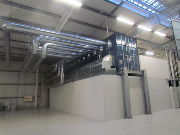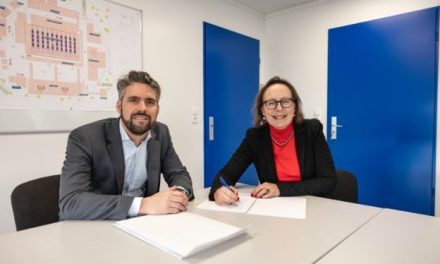 Universities and colleges may be unaware they could very soon face penalties for not cutting their carbon emissions. The penalties, to be levied under the government’s Carbon Reduction Commitment (CRC), could amount to many tens of thousands of pounds if action is not taken soon.
Universities and colleges may be unaware they could very soon face penalties for not cutting their carbon emissions. The penalties, to be levied under the government’s Carbon Reduction Commitment (CRC), could amount to many tens of thousands of pounds if action is not taken soon.
Twenty-three universities were ranked bottom of the carbon efficiency league table released by the government last month. However, Hertford Regional College has come up with a solution in the form of a partnership with an Icelandic company offering ‘green’ data solutions – with almost zero emissions.
The Thor Data Centre, based outside Reykjavik, is run entirely on geothermal power generated by the natural heat of the earth – and utilises the chill air of the local climate to cool servers. As a consequence, the centre’s C02 emissions are almost zero.
Hertford Regional College has now passed all UK government protocols and procedures allowing them to sell on the vastly reduced price and carbon efficient services to universities, colleges and other public bodies.
David Spratt, from Hertford Regional College, said, “Many colleges and universities seem unaware that they are risking massive fines and penalties for failing to comply with the Carbon Reduction Commitment. Hertford Regional College can avert the crisis and make up to 30% savings on their IT energy bills too.”
The government has implemented fines and penalties for C02 produced by large public institutions over and above new reduced limits. The penalties total £12 per tonne per annum and colleges and universities have been ordered to reduce emissions to 1990 levels in line with international agreements.
To further confuse matters many were not operating in 1990 – and have no carbon emission figures to compare with. An average university produces around 40,000 tonnes of C02 per year and spends in the region of £5m – £10m per year on energy.
Average savings experienced by organisations within the HRC Cube programme are around 30 – 40%. In addition, Icelandic energy prices are remarkably stable – with electricity prices fixed for the next ten years.
“We can help bring down the cost of IT provision – and eliminate the risk of crippling fines due to breaches in the regulations,” said Spratt.
“We have done the hard work investing years establishing the scheme – now we can make it work for the wider education sector. Even the colleges and universities that are performing well enough to comply with carbon reduction targets and escape penalty can still make huge savings – whether they move their physical or their virtual servers to the world’s greenest data centre.”
Andy Forbes, principal of Hertford Regional College, believes that the new initiative provides an important opportunity for cash strapped colleges.
“There has never been a more challenging time for the sector in terms of delivering the very best opportunities to students in times of financial constriction. Having come up with a robust cost saving solution to our own issues, I am delighted that we are now able to open it up to rest of the education sector.”




